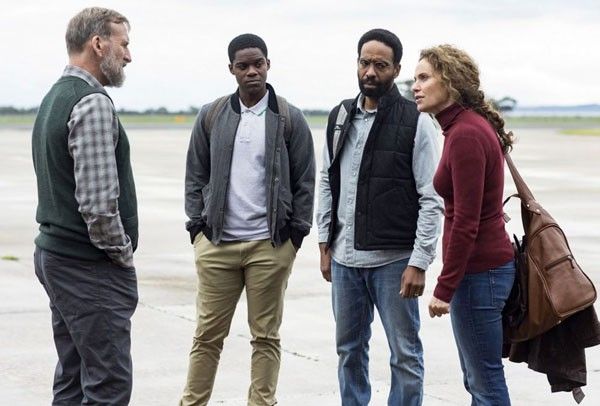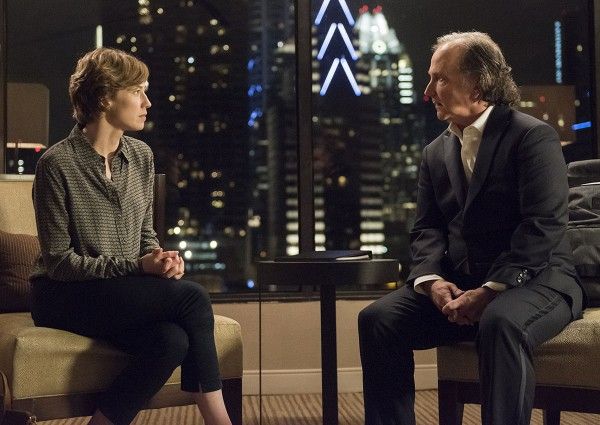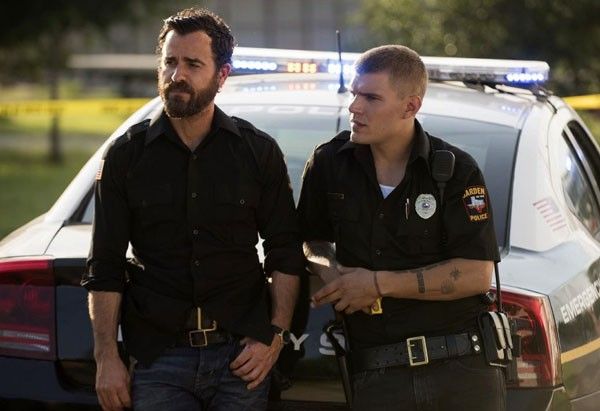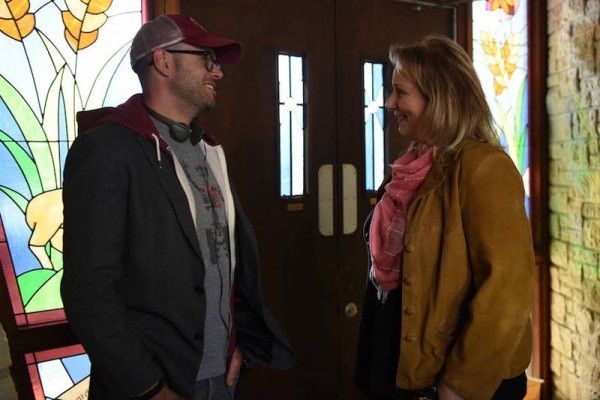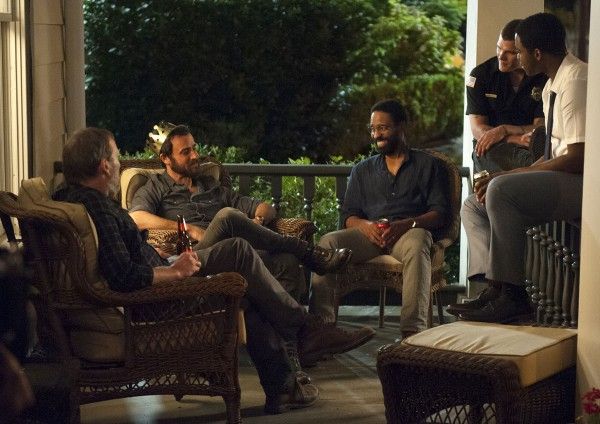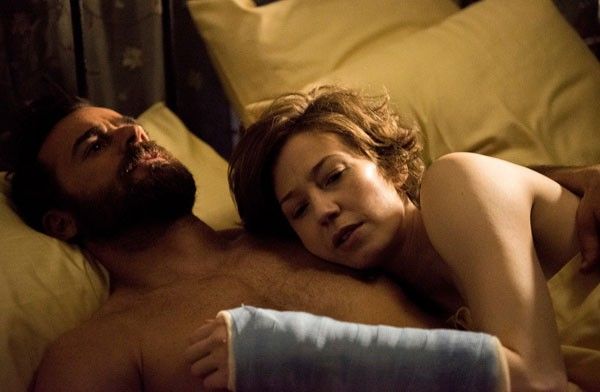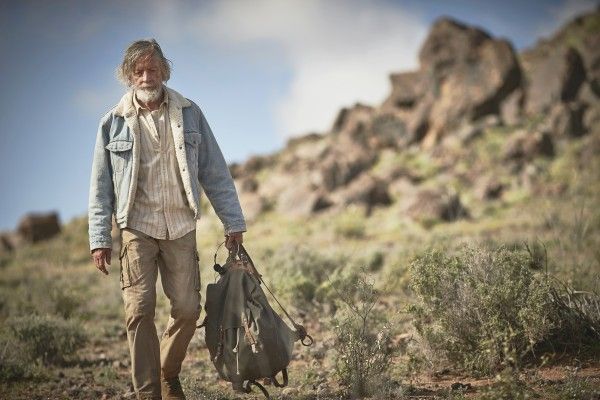Created by Damon Lindelof and acclaimed novelist Tom Perrotta, the HBO series The Leftovers, about what happens after 140 million people vanished from the face of the earth, is currently in its final season. With the seventh anniversary of the Sudden Departure approaching, everyone is desperately trying to grasp for a system of belief to not only better explain what happened, but to help them deal with what could still be to come. Throughout its three-season run, The Leftovers has taken risks and done things outside of the typical storytelling box, which has made the series nothing less than compelling.
After seeing seven of the eight episodes of Season 3 (they were understandably withholding the final episode of the series), Collider sat down with showrunner Damon Lindelof and executive producer Tom Perrotta (who wrote the book the series is adapted from) to talk about all things The Leftovers. During the interview, we talked about when they started working towards their ending, resolving most of what audiences will want a resolution for, by the end of the series, why the final season is eight episodes instead of their usual 10, deciding which crazy ideas to incorporate and which not to, and how Reddit’s ability to crack “puzzlebox TV” has to change the approach to storytelling.
Collider: Did you know, roughly, what the end point of this show was, when you started Season 1, or was that something that evolved throughout?
TOM PERROTTA: We did not know the end of the show, in Season 1. We didn’t know until this year that we would have a chance to end the show. We certainly hadn’t gotten much ahead of ourselves, in terms of the writing of the show.
DAMON LINDELOF: I think one of the problems in determining the ending for a television series is that you don’t know how long the show is gonna last. Particularly because we were in the unique position of adapting Tom’s novel, it always felt like the first season was gonna end with the end of Tom’s novel, and then we would figure things out from there and look back. Vince Gilligan has talked about this a lot with Breaking Bad, but that show was so intricately designed, they only took on one season at a time. Then, all you have to worry about is the season that’s right in front of you. I was like, “You can do it that way?!” And it ended up being incredibly refreshing.
When the second season ended, we didn’t know if there was gonna be a third season. If we had held anything back, we would have lost a lot of sleep because maybe there wouldn’t be a third season of the show, and maybe Season 2 wouldn’t have felt as complete. There were ideas that we had for the third season, and we probably also knew, mid-way through Season 2, that it started to feel like we were coming down the hill vs. going up the hill. We knew that we were working towards and ending. We were closer to the end than we were to the beginning, but we were totally prepared, although we wanted a third season, for the show to be over with Season 2. When they said, “We want there to be more,” we were the ones who said, “Season 3 is it.” And HBO, fortunately, said yes. And then, before we even started writing the first episode of Season 3, we talked, at great length, about what the final scene was gonna be. We knew that we’d fail miserably, if we didn’t focus entirely on how the series was gonna end.
Having seen seven of the eight episodes of Season 3, I have no idea how you’re going to end the series with only one more episode.
LINDELOF: At least it’s 70 minutes long, the final episode, so it’s packed. I think that’s good, though. I wouldn’t want you feeling the opposite, which is, “I feel like, at the end of the seventh episode, I’m done!” I’d say, what are the things you need to be resolved in the final episode? And I’d guess that we probably check most of those boxes, in the eighth episode. I felt that way going into [the finale] of Big Little Lies. I was like, “Oh, my God, how are they gonna do this all in an hour?!” And I loved it! I thought it was fantastic!
How did you decide on eight episodes?
LINDELOF: We’ve done 10 episodes, every season, and HBO was like, “We’re gonna give you eight episodes.” We felt like, “We’re lucky to get a third season, so we’re not gonna push our luck.” At that point, they already knew, but they weren’t telling us, that Game of Thrones wasn’t gonna be on in April, so they had this space where the finale of Girls was gonna overlap with the beginning of Veep and Silicon Valley, so we just had to move a little faster than we traditionally do. It would have been great to have 10 episodes, but there wasn’t any story we didn’t get to tell, I don’t think.
PERROTTA: Yeah, I don’t think so. It felt like we were sprinting.
LINDELOF: We probably would have maybe had a little bit more storytelling about the Murphys, or certainly the kids, Jill and Tom. But once we realized that we had eight, we had to push those characters a little bit aside and focus on others. And Regina [King] was not available to us because she was doing American Crime and directing a bunch of other shows, so that forced us to make certain creative decisions. But I look back on it, and eight feels good.
PERROTTA: It feels good. Where we’re different from Breaking Bad is that the show is kind of diffuse, in some ways. It’s a family show and it’s an ensemble show, but it forced us to say, “What is the core of this show? What is the essential question that we need to answer to end it?” One of the questions is a big philosophical question, and the actual apocalyptic question, is the world gonna end? But then, it’s also, what are the core relationships that this show has been about?
Tom, what has this experience been like for you, to not only take your novel and have a hand in turning it into a TV show, but to really get to go beyond that, in a way that you probably never thought you’d do?
PERROTTA: It’s turned out to be an exhilarating experience. I got the experience I thought I’d have, which is that we adapted the book that I wrote. But then, these last two seasons, we got to move into this space that is not necessarily a space I ever would have gotten on my own, which is really big, really bold and very weird, in a great way. I got to have my cake and eat it too, meaning that we adapted the book, and then I got to be a part of this project that was something bigger than I ever thought it would be.
You’ve gotten to take chances, experiment, and do a lot of interesting things with this show. Did the positive response to a hugely ambitious episode like “International Assassin” in Season 2, give you the confidence to do more weird or out there moments, or episodes like Episode 7 in Season 3?
LINDELOF: I think that we, as writers, get excited by risk. When we are feeling comfortable and familiar, I wouldn’t say that we get bored, but the energy in the room gets flat. When we’re most excited and when the show is the most fun, it’s when we’re duking things out. If I tell you that there were crazy ideas that we did not do in Season 3, you’d be like, “What were those?!” But, you have to find what your threshold is. If there is one criticism of Season 1 that I have, as a viewer, it’s not that the show is too sad and depressing, or bleak. I don’t disagree with that sentiment, but that was very much by design. It’s just that the show wasn’t taking any risks. It wasn’t exciting. When it started saying, “Let’s start an episode with watching someone get stoned to death,” although that’s potentially off-putting, it suddenly made my heart race. I was like, if my heart is racing in the writers’ room when somebody pitches an idea, then won’t the audience’s heart be racing when they watch it? Particularly because there’s so much great television out there right now, there’s this idea of, what is the show going to do in its dance battle? You can’t just come out and do the same moves that you always do because someone just basically came into the center of the ring and spun around on their head and did a back flip.
So, we come into the writers’ room and we’re talking about what happened last night on Fargo, or what happened three nights ago on Mr. Robot, or how Jon Snow is back to life (on Game of Thrones), and then we talk about how we’re going to do the coming back to life story different. It’s about what are move will be in the dance battle. I think the existence of these other television shows forces us to up our game, but also, we started having fun in the writers’ room. If you can get somebody to laugh with your crazy idea, half the time, those ideas ended up in the show.
As we were talking about Nora getting a tattoo of her children’s names, but then she feels embarrassed for herself and she needs a tattoo to cover it up, everyone’s homework was to say what tattoo Nora gets to cover it up. One of the writers, Tamara Carter, said that she should get the Wu-Tang emblem, but that she doesn’t know it’s the Wu-Tang emblem, and we were like, “God, what a great idea! That’s hilarious!” And then, it just snowballs from there. Some people will watch the episode and go, “That’s the stupidest thing I’ve ever seen,” but when you’re taking risks, you can really only write for yourself.
PERROTTA: It’s a funny idea, but when Nora shows that tattoo to Erika and tells the story of it, you feel her pain. It doesn’t work just as a joke. That scene is amazing!
LINDELOF: The best jokes on The Leftovers are the ones that make you feel a little sick to your stomach.
When you can do things that are out there and weird, how does something end up being too out there or too weird? How do you determine that?
LINDELOF: I think you just asked the pivotal question, which is that you have to circle back from the crazy idea and make it emotional. So, how do you take the idea of Kevin as an international assassin who has to kill Senator Patti Levin and build it towards an emotional breaking point? Somewhere in that process, we were like, “There should be a little girl, and that’s Patti, as a little girl, and Kevin should have to kill that little girl.” Once we get to that scene, even inside of a dream construct, that’s going to be excruciating for him, and he’s going to be really vulnerable and emotional. Even the Wu-Tang idea has an emotional idea at its center, which is that there’s a part of Nora that needs people to know what she lost, but then she feels pathetic for wanting to share that. It’s about what she’s doing to cover up her shame. So, if there’s an emotional idea at the center of the craziness, it sells. But then, there were other ideas where we’d all laugh, but then we couldn’t make an argument to earn it emotionally and it would go by the wayside.
PERROTTA: We’re lucky to have somebody like Carrie [Coon], where you can put her on a journey like that. She’s having this emotion and she’s covering it with that emotion, and then she’s doing this crazy thing in reaction to what she perceives is her own emotional weakness, and is all the while broadcasting this idea of being totally in control. To watch her journey in Episode 2, just balancing through those scenes, is amazing.
LINDELOF: For Episode 2, we were like, “What if Mark Linn-Baker is the one who pitches her the idea of the ladder?” That started as just a crazy idea. We kind of earned it because we set up this gag, way back in Season 1, when Kevin Sr. is talking about Perfect Strangers. And then, in Season 2, there’s a beat of Mark Linn-Baker being arrested in Mexico because he faked his own Departure. But now, if he’s going to actually show up in this episode, he has to be an emotional being, too. He has to have lost something. If it’s just a con story, it’s not as interesting, but what if Mark Linn-Baker really believes this thing that he’s pitching to her, to the point where she’s actually considering doing it? That just sounds crazy, on every level. And hell, let’s just throw the Perfect Strangers theme song over our opening titles and see what happens. And then, it was called “Perfect Strangers.” Mark Linn-Baker is this tragic figure, in that everybody always talks about the crazy cousin, but he was the straight man. So, we called him up and were like, “Will you do this?” And he was like, “I’m so in!” But, you just don’t know until the episode airs. You just don’t know.
PERROTTA: Mark Linn-Baker did an amazing job. We had these actors come in and do the testimonial videos (that Nora watches on her laptop) and I happened to be on set when they did that, and I just thought that was an incredibly powerful thing. That really lends credence to what Mark Linn-Baker is talking about. You watch Nora watch them and something shifts in her, and that started as just a little grace note, but it added this real sense of this thing that sounded like a con or a bad joke has weight in this world.
LINDELOF: The thing that unlocked the episode for us was that she only wants to go to St. Louis because it’s driving distance to where Lily is. She wouldn’t fall for this, if there wasn’t an ulterior motive. That was the way that we ended up learning it. The audience was like, “She went all the way to St. Louis to meet with Mark Linn-Baker?!” But then, you realize that she’s actually there to do something else. And then, at the end of the episode, she’s going to Australia. That, to me, was the most exciting idea when it was pitched. Everyone is assuming the show is going to Australia because Scott Glenn is already down there having his own TV show and we’re just going to catch up with it, but what if Nora is the reason that everybody goes? We liked that idea.
PERROTTA: And we also answered the question of, where’s Lily? That was just a cluster of ideas that scared me, as a writer. I was like, “Oh, god, how are we gonna pull this off, and why is Damon bringing Mark Linn-Baker back into this?”
Damon, when you see how Reddit was able to crack “puzzlebox TV” like Westworld, do you think it would have changed how you had to have approached writing something like Lost, or even The Leftovers?
LINDELOF: That’s a great question. I feel like the big twist shows are now off the table. I think Westworld was probably the last one to Trojan horse this idea of the young man in black. They were doing non-linear storytelling, but disguising it. Jonah [Nolan] and Lisa [Joy] have spoken openly about how they just didn’t think people were going to figure it out that fast. And in a post Mr. Robot world, where people were like, “Oh, Christian Slater isn’t real?,” what was great was that that worked for a smokescreen for other twists, like the brother-sister turn. I think that storytellers are going to have to evolve. For a streaming show, you can still do twists because all the episodes dump at one time and Reddit can’t do its work. But for a weekly show, for any kind of mystery, someone in the audience out there is gonna get it.
What’s amazing for The Leftovers is that, probably largely because nobody was watching the show, nobody guessed that Evie had joined the Guilty Remnant in Season 2. We were watching Reddit, and nobody had figured it out. It played as a twist reveal, and I think the only reason that it did work was because the audience didn’t feel like The Leftovers was a twisty show. Because the Departure was on the table, and because Tom and I have said, from the get-go, that we may never answer that, when Evie disappeared in the premiere of Season 2, the audience was like, “They’re probably never gonna tell us what happened to her.” So, the idea that they got any answer, let alone that answer, was itself a twist.
PERROTTA: That’s out strength. I don’t think people are even sure what questions they’re supposed to be asking about The Leftovers, which makes it sometimes hard to write because the story doesn’t tell us, in a very direct way, what to do next. That’s what’s been interesting for us, as writers, and for the people who are willing to live in this space of uncertainty, it makes a really interesting show.
The Leftovers airs on Sunday nights on HBO.


